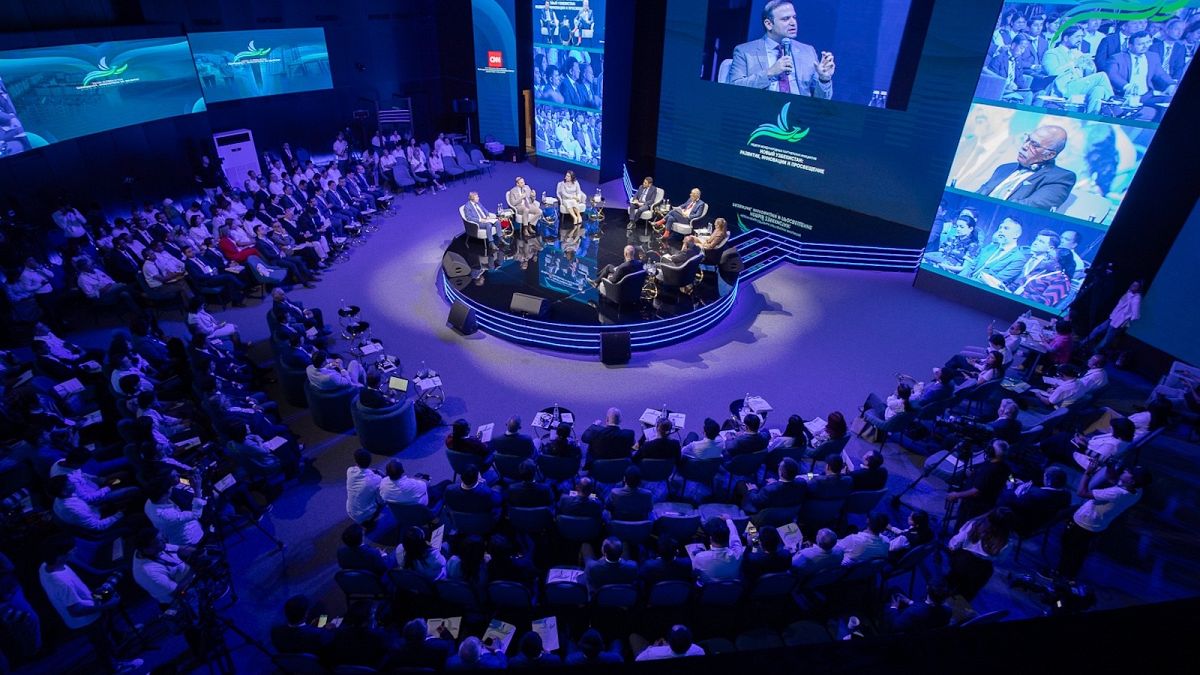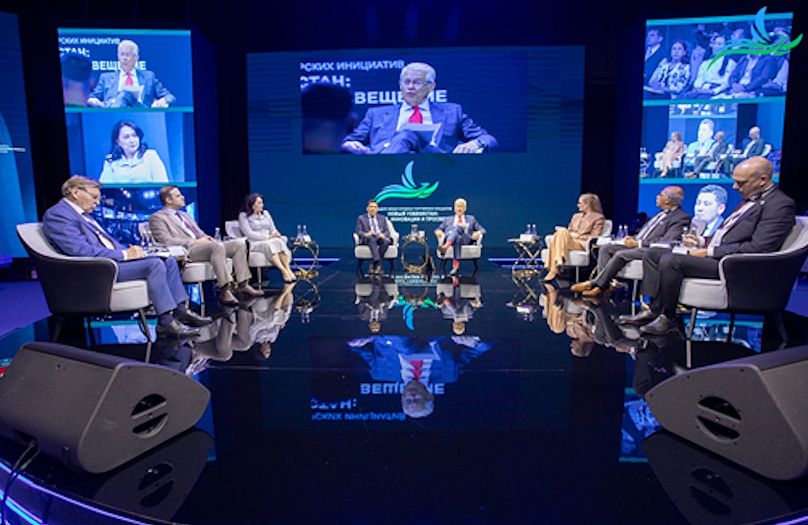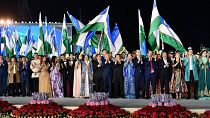Tashkent, Uzbekistan - Uzbekistan citizens last week were given a week-long examination of how their nation’s reform program has progressed and where it is heading now.
Organizers of the conference asked all major government ministries to invite their closest international partners and advisors to Tashkent to publicly provide a progress report on the nation’s reform agenda. The result, televised nationally, was a series of mini-conferences covering nearly every aspect of life, from accelerated GDP growth to the state of the fashion industry.
The event was organized alongside a well-established annual conference on Uzbekistan’s cultural heritage. Convened each year by the World Society for the Study, Preservation and Popularization of the Cultural Legacy of Uzbekistan, that conference focused on Uzbekistan’s centuries old history as a cultural hub linking Asia, Europe and the Middle East. Representatives of more than 70 museums, international universities and research centers discussed ongoing work to catalogue and reproduce ancient texts held world-wide.
Discussions then morphed into the New Uzbekistan conference, a wide-ranging assessment of more recent times and the immediate future, with senior government officials and their international counterparts comparing notes on Uzbekistan’s ongoing reforms before an audience of over 1,000 guests.
The setting for both conferences, a vast ultra-modern, high-tech conference center built in just 40 days by local EPC contractor Enter Engineering Pte, appeared to symbolize the speed of change in Central Asia’s most populous nation. More than 300 foreign business partners, aid agencies and multilateral financial institutions took to the stage to assess the situation in over 50 separate discussion sessions.
“There have been significant reforms over the last six to seven years: exchange rate liberalisation, financial sector reforms and new tax code tax reforms, modernization of agriculture, and fiscal consolidation,” Pinar Yashar, World Bank Senior Economist for the Europe and Central Asia Regions, told a session on sustainable development. “The competition law was recently approved and I'm sure that it will contribute to the competitive environment in the country significantly. So as the World Bank, we are supporting the ambitious reform agenda of the government.”
There was much talk of Uzbekistan becoming the next “Eurasian Tiger”. A key official from one of the original Asian Tigers, the executive director of the Singapore International Cooperation Organization, pointed to the need to embrace technological change. Kong Wai Mun said: “Innovation and technology have proved to be a key driver for sustainable economic growth. Markets are gearing up for even more embrace of new technologies like AI. I’m glad to see that they are being embraced in Uzbekistan as a key lever toward even faster growth. In Singapore we are called a roaring lion, and I think you can even rise above that.”
Climate change preoccupied several sessions, with Uzbekistan’s struggles with energy security and water shortages regarded as potential limits to growth.
“We need to see climate resilient education, system and infrastructure,” Munir Mamedzadeh, head of the UNICEF office in Tashkent, told a session on education. “In order to understand better what are the emerging realities in the economy or introduction of artificial intelligence, we must engage children and young people and communities themselves to be part of the national dialogue.”
Aizhan Beiseeva, a senior USAID manager, raised the challenge of transport costs. Ms Beiseeva, who is responsible for the American aid agency’s Competitiveness, Trade and Jobs program in Central Asia, pointed out that external trade is increasingly a driver of growth across the region, with trade within the region doubling over the past five years and rising 54% with Europe over the same period. But all five Central Asian nations are landlocked, and Uzbekistan, located in the middle, is doubly landlocked.
“So, due to geographic position and dependence on external trade, we have a number of disadvantages in infrastructure,” she said. “And of course, a long distance to seaports. Of course, transportation expenses are increasing due to these factors.” New, more sustainable transit corridors must be developed, she said.
There were other cautions raised about Uzbekistan’s prospects. When the Minister for Employment and Job Creation discussed the government’s extensive program of training for potential jobs abroad, international political strategist asked: “How can we be sure that the language and skills training being provided by the government will not provoke a brain drain by enticing talented young people to seek work in more developed economies rather than contribute to the growth of Uzbekistan’s economy?”
The discussion also turned to the need for commercial results from the education system, with Ibrahim Abdurahmanov, Uzbekistan’s Minister for High Education, pointing to the government’s emphasis on developing innovation centers and technoparks to prototype scientific ideas. ““Historically, we had lots of good schools, good talents, but we finally understood ourselves that innovation is not science only. Innovation is like money. When you sell your knowledge, that is innovation.”
In a session focusing on the overall trajectory of the reforms program, Adem Kula, General Secretary of the Union of Turkic Chambers of Commerce and Industry, said, “The number of entrepreneurs has increased a lot. Economic reforms have been crucial in order to help these new companies to do business, especially as they try to extend exports, which play an important role for country development, since entrepreneurs bring foreign exchange into the country. The new legislation to facilitate this process has been instrumental.”
In the same session, Sodiq Safoyev, First Deputy Chairman of the Senate of the Uzbekistan Parliament, said: “Uzbekistan is on the edge of serious, challenging reforms, including land reform, private ownership, privatization, more decentralization of governance system, applying good governance principles, et cetera. With our renewed Constitution, we have a legal foundation for stage 2.0 stage of reforms, which will open up new horizons for Uzbekistan’s development.”
Interspersed amongst the serious discussions about economic and social trends there were lighter moments, including a fashion show and an exhibition of miniatures of historical figures who contributed to the development of world civilization.
“Frankly, we ourselves were amazed,” said Firdavs Abdukhalikov, chairman of the World Society for the Study, Preservation and Popularization of the Cultural Legacy of Uzbekistan, co-organizer of the two events. “The reaction from our foreign partners was very positive and supportive. I think our co-organizers, the Center for Sustainable Development of Uzbekistan, would agree: The international response was overwhelmingly enthusiastic.”



